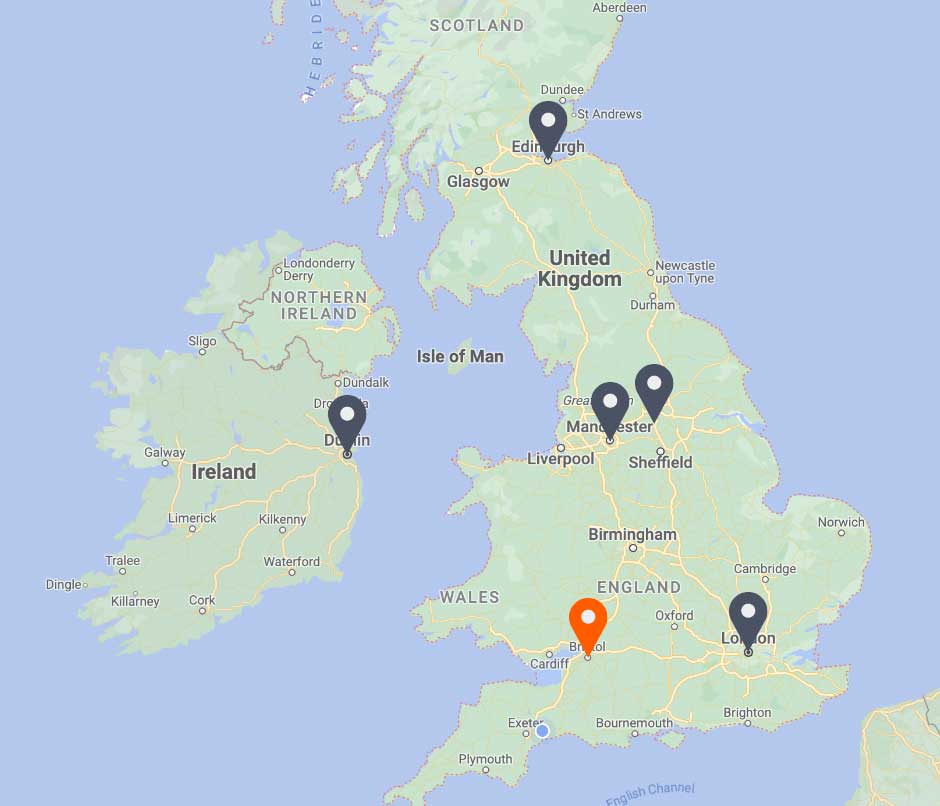THIS ARTICLE AT A GLANCE
CONTACT ETS
If you have any questions or would like to discuss further what you should be doing, ETS is here and willing to help.
Call 0117 205 0542
Email enquiries@energy-ts.com
Submit a contact form
CHECK OUR SERVICES
The True Cost of Going Zero Carbon by 2050

What is the climate emergency declaration?
The United Nations say we could have just 11 years left to limit a climate change catastrophe. The UK is the first country in the world to declare a “climate emergency” – one of the key demands put to the government by environmental activist group, Extinction Rebellion, and the recent declaration will accelerate efforts for the UK to become carbon-neutral by 2050.
This will see increasing pressure on commercial enterprises to support the transition to a low carbon economy and the government’s ambition to achieve net-zero emissions by 2050 will have a significant impact on businesses, particularly within the built environment.
How will the UK achieve zero carbon by 2050?
The UK is already legally committed to an 80% reduction in carbon emissions by 2050 (relative to 1990 emission levels) and in 2017, successfully lowered emissions to 43% below 1990 levels. However, according to the Committee on Climate Change, the UK is unlikely to meet its targets for 2023 – 2027. So, just how realistic or achievable is the new ‘net-zero’ target?
The transition to a zero-carbon economy will require a concerted effort and action by all sections of society. It requires the right policies and government funding to support businesses to achieve this new target, whilst maintaining a balance with all the other pressures being faced across industry.
According to the UK Committee on Climate Change (CCC) it will cost 1 to 2 percent of GDP each year (approximately £50 billion per year) to achieve net-zero by 2050. However, other sources speculate that this cost could be considerably higher when considering the impact on different sectors of the economy.
Whilst the CCC believe it is technically feasible to achieve net-zero carbon emissions by 2050, it will clearly be challenging. The UK has already set carbon budgets and developed policies on the path to an 80% reduction in GHG emissions by 2050. However more needs to be done to accelerate the progress already made by the UK as illustrated below.
How will this affect businesses in the UK?
At this early stage it is difficult to predict the effect this will have on UK businesses, but one can fairly confidently assume rising costs of energy and an increasingly onerous legislative landscape. The UK Government already has policies in place to help achieve the current target of 80% GHG but the pressure on all sectors of business and industry will only get stronger.
We would hope that in aid of this recent development, the UK Government will support businesses through this transition. Increasing the availability of grants to fund energy efficiency schemes and educating owners / investors on suitable technologies available to them, would be welcomed although the lessons will have to be learned from less-than-successful previous legislative interventions, in particular those targeting the built environment.
More Answers
Final thoughts
If you are looking for an energy management system that is tailored to your business needs, ETS can provide you with 25 years of experience in dramatically improving energy efficiency and reducing environmental impacts. Whether your businesses have individual assets or large international portfolios, ETS can assist you in saving substantial amounts of money while significantly reducing your carbon performance.
To discuss your requirements, get in touch. You can contact us by calling 0117 205 0542 or drop us an email at enquiries@energy-ts.com.
Related Article
8 Ways Businesses Can Reduce Energy Use in the Workplace This Winter
Discover how to comply with ESOS Phase 4 and unlock energy-saving opportunities for your business. This guide explains the requirements, highlights key deadlines, and provides actionable strategies. Learn how energy audits, tailored action plans, and expert support can reduce costs, improve efficiency, and align your organisation with sustainability goals.
ESOS Action Planning: Complying with Phase 4 and Implementing Energy Saving Strategies
Discover how to comply with ESOS Phase 4 and unlock energy-saving opportunities for your business. This guide explains the requirements, highlights key deadlines, and provides actionable strategies. Learn how energy audits, tailored action plans, and expert support can reduce costs, improve efficiency, and align your organisation with sustainability goals.
Important Update: What You Need to Know about ESOS Phase 3
Time is ticking for the ESOS Phase 3 deadline. The Environment Agency announced that the reporting system is available now. For organisations qualifying for ESOS Phase 3, the deadline for submitting a compliance notification is 5 June 2024, and organisations should still look to meet this compliance notification deadline where possible.









































































